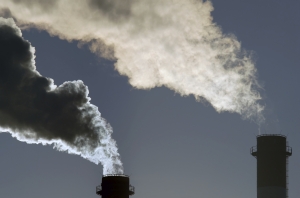MELBOURNE, May 22, 2017 – A new study from energy and carbon advisory firm, RepuTex, indicates that Australia can reduce greenhouse gas emissions by 45 per cent on 2005 levels by 2030 – equivalent to a 2-degree target under the Paris Agreement – at no net cost to business.
The new modelling – which analyses emissions reduction opportunities in Australia and the cost of action – indicates that Australia has ample domestic abatement to meet a 2-degree target under the Paris Agreement, with around 600 million tonnes (Mt) of emissions reductions available across the economy by 2030. This is equivalent to Australia’s emissions in 2005, the baseline year for Australia’s contribution to the Paris Agreement.
Australia therefore has enough abatement to meet a 45 per cent cut in emissions (abatement of 265 Mt) by 2030, as recommended by the Climate Change Authority, to contribute to limiting global warming increases to less than 2-degrees Celsius.
According to RepuTex, such a cut could be reached by implementing all abatement measures below $20 per tonne of carbon dioxide equivalent (CO2-e) in 2030, representing the marginal cost to industry of meeting the 2 degree target.
The marginal cost would rise to $60 per tonne of CO2-e to meet a target consistent with limiting warming to 1.5 degrees, according to RepuTex.
2 DEGREE TARGET MAY BE MET AT “NO NET COST”
Notably, RepuTex analysis indicates that Australia has a considerable number of opportunities to reduce emissions at a “cost saving” to investors, with 40 per cent of all emissions reduction activities identified as providing a positive return to investors, including the take up of distributed solar photovoltaics (PV), fuel efficiency and farm forestry.
“Findings indicate that Australia has a significant volume of cost saving opportunities available to meet a 2-degree target under the Paris Agreement” said head of research at RepuTex, Bret Harper.
“By 2030 we estimate that around 40 per cent of all missions reduction activities can be realised with a positive return to the investor, in that they capture the benefit of buying less energy or improving resource efficiency. This could contribute up to 165 Mt of abatement, or 62 per cent of Australia’s task to meet a 2 degree target by 2030” he said.
RepuTex estimates that the total benefit of implementing all cost saving activities represents approximately $13 billion in savings in 2030.
Furthermore, analysis indicates that the total savings ($13 billion) from these activities are so large that they outweigh the total cost of implementing all emissions reduction activities to meet a 2-degree target in 2030 ($2 billion), up to a cost of $20 per tonne of CO2.
This means Australia could meet a 2-degree target at no ‘net cost’ by capturing the significant volume of cost saving opportunities available.
“Findings indicate that the total benefit of implementing all efficiency activities represents approximately $13 billion in total savings by 2030,” said Mr Harper.
“The total cost to implement all available activities up to $20 per tonne of CO2 is $2 billion, so, in theory, Australia can meet a 2-degree target at no net cost to the economy,” he said.
LAND SECTOR AND ELECTRICITY OPPORTUNITIES DOMINATE
The RepuTex report identifies 150 opportunities to reduce emissions across eight sectors – Agriculture, Direct Combustion, Electricity, Fugitives, Industry, Land-use, Transport and Waste. Analysis measured the size and cost of each activity, and the potential for emissions reductions to contribute to Australia’s targets under the Paris Agreement.
Across the whole economy, the Land-use sector represents 40 per cent of Australia’s total emissions reductions in 2030 (230 Mt), with the majority of emissions reductions attributed to environmental plantings, forest regeneration, and regenerative farming.
The electricity sector is forecast to contribute 30 per cent of all emissions reductions in 2030, attributed to wind and solar.
RepuTex modelling indicates that the Direct Combustion sector has the lowest marginal cost opportunities, at a net benefit of $30 per tonne CO2-e, followed by Agriculture at a benefit of $24 per tonne CO2-e, and fugitive emissions at net benefit of $1 per tonne CO2-e.
PRESSURE GROWS FOR COMPANIES TO BUILD 2°C TARGET INTO DECISIONS
The RepuTex study is expected to re-shape thinking on the cost of meeting Australia’s emissions reduction target, with the government under pressure to set a long-term target that better aligns with climate science as part of its 2017 climate policy review.
The Australian Prudential Regulation Authority (APRA) – which oversees banks, credit unions, building societies, and insurance companies – has also called for companies and investors to model the impact of 2-degree target on their businesses and portfolios, raising the stakes for industry to factor climate change risks into their decision making.
According to RepuTex, this suggests that companies should be factoring the cost of meeting a 2 degree target into their business decisions today.
“The transition risk associated with a 2 degree target under the Paris agreement is now material for Australian companies” said Mr Harper.
“In the absence of a policy price signal, we view a long-term marginal cost of abatement of $20 to $60 per tonne as key reference point for investors. This is consistent with climate science under the Paris Agreement,” said Mr Harper.
According to RepuTex, the 2-degree target is a better price guide for industry than the government’s current emissions target of 26 per cent below 2005 levels.
“Ultimately businesses need to understand the cost of where we are going, not just the cost where we are today” he said.
RepuTex is Australia’s largest provider of energy and emissions market analysis, with customers at over 150 of the region’s leading Power, Energy, Metals, Mining, Government and Carbon Farming firms.
MEDIA CONTACTS
RepuTex spokespeople are available for comment. Please contact RepuTex Melbourne on +61 3 9600 0990.










